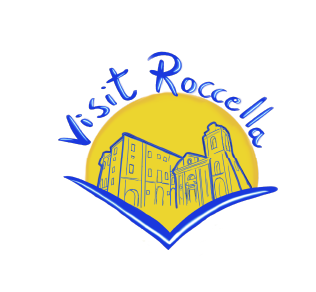translated with AI
The General Minici Palace stands along Via Vittorio Emanuele, facing the Priorato dei Gerosolimitani della Roccella. Its solid structure presents an elegant appearance that sets it apart from the surrounding buildings.
Lieutenant General Medic was born in Roccella on June 4, 1853, registered in the registry as Eugenio Giuseppe, son of D. Ippolito Minici, owner, and D. Emanuela Sofrè. At the age of 24, he graduated in medicine with top honors from the University of Messina, immediately joining the Military Health Corps where he had a brilliant career ahead of him. In 1887, Eugenio Minici was a Captain and Major Aide at the Military Hospital of Messina when Roccella Jonica was hit by a cholera epidemic. He immediately rushed to the aid of the cholera patients, writing one of the most beautiful chapters in Roccella’s history, demonstrating altruism, civic dedication, and a high sense of duty during those summer months.
After calming the devastating fury of the terrible disease, the Municipal Administration, in a special council meeting, proposed awarding a medal to General Medic Dr. Eugenio Minici. It was October 7, 1887, when the Council was first convened:
“… Considering that Captain Medic Mr. Eugenio Minici, with diligence and self-denial, provided his work throughout the entire time of the epidemic and also had the responsibility of assisting and directing the lazaretto hospital for cholera patients. That he greatly and powerfully contributed and cooperated together with local health workers to circumscribe and definitively extinguish the fierce disease. That with admirable generosity, he declared that he did not expect any compensation whatsoever from the Municipality in money for the health service provided during the time of the epidemic. Considering it a duty of Justice to reward in any way the beneficent work he performed and lavished. – Unanimously Resolved – Confers upon Dr. Eugenio Minici, Captain Medic, a commemorative gold medal for the service rendered to the benefit of this Municipality during the cholera epidemic, expressing at the same time the feelings of commendation and admiration. Assigns the Executive Committee for execution”.
He was later promoted to Major and was called to direct the Military Hospitals of Bari, Bologna, Catanzaro, Naples, and Messina. It was in Messina, with his wife and five children, that the terrible earthquake of 1908, which destroyed Reggio and Messina, struck him, causing him injuries. But the hardest blow was seeing his entire family destroyed by the rubble and violence of the earthquake. However, despite being struck in his affections, he worked tirelessly to organize relief efforts. For this generosity, he was awarded another gold medal for civil valor.
He participated in the campaign in Libya always in charge of the Health Corps, where he distinguished himself during another cholera epidemic that broke out in Tripolitania, earning yet another medal. At the outbreak of the First World War, when he was Director of Health of the First Army, he was directly invested by the Duke of Aosta, who wanted him as Director of the heroic Third Army.
His dedication and leadership during the epic battles on the Karst, on Mount Sabotino, and on Monte San Michele earned him the promotion to Major General and the commendation of the SS. Maurizio and Lazzaro, as well as the high decoration of the D.S.O. by the Chief of the British General Staff.
Appointed Inspector General of the Military Health Service, at the end of the 1915-18 War, he received the well-deserved honor of the Mauriziana Medal for his long military service, which also allowed him to be promoted to Lieutenant General Medic, representing the highest rank in the military medical career.
Retired due to age limit, he returned to Roccella, where he devoted himself to a detached section of the Red Cross in his hometown and assumed the direction of the local section of the Locride. He died in Roccella on July 26, 1937, and is buried in the family chapel. A bronze bust was erected in his honor. He left many works and scientific publications on medicine, as well as a study on trachoma in Italy, a work that was awarded at the International Hygiene Exhibition.
Roccella owes him the dedication of a street to this deserving son, to be preserved as an example and everlasting memory.
